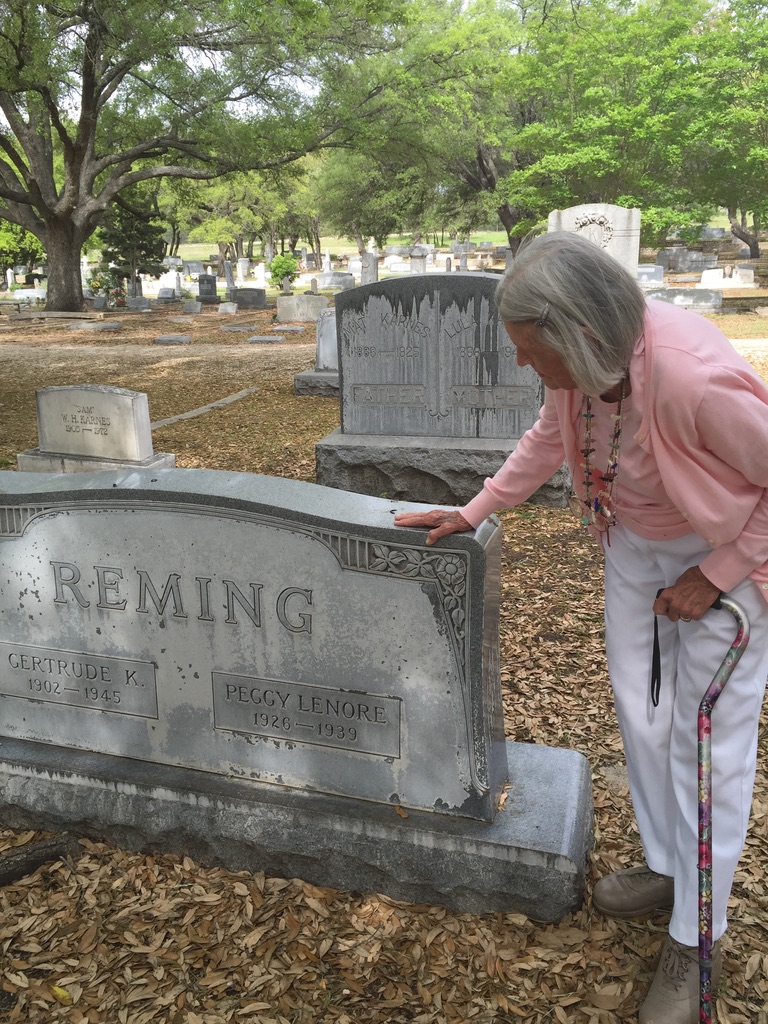Introduction to story by Edith’s daughter, Peggy Kokernot Kaplan
It is a story about a cherished friendship and of the hopes and dreams of two inseparable young girls from a small Texas town in the 1930’s. Tragically, their time together, since kindergarten, was cut short as they entered their teen years because of polio. It is not intended to make you sad, but to let you know that many people who knew those afflicted or who died because of polio are still near and dear to their hearts even years after they are gone.
My 94-year-old mother wrote, “It Happened in May" several years back. She shared this story of my namesake with me, and it has become a delicate treasure of their eternal friendship.
- Peggy Kokernot Kaplan
A version of this story is published in the Michigan Polio Network website.
It was May 20th and school was out. My best friend, Peggy, and I had just completed seventh grade. We would be entering high school in the fall. In 1939 our school had only eleven grades, seven years of grammar school and four of high school. High school seemed scary to us, though we were quite excited about the prospect. We were thirteen years old, on the cusp of adolescence.
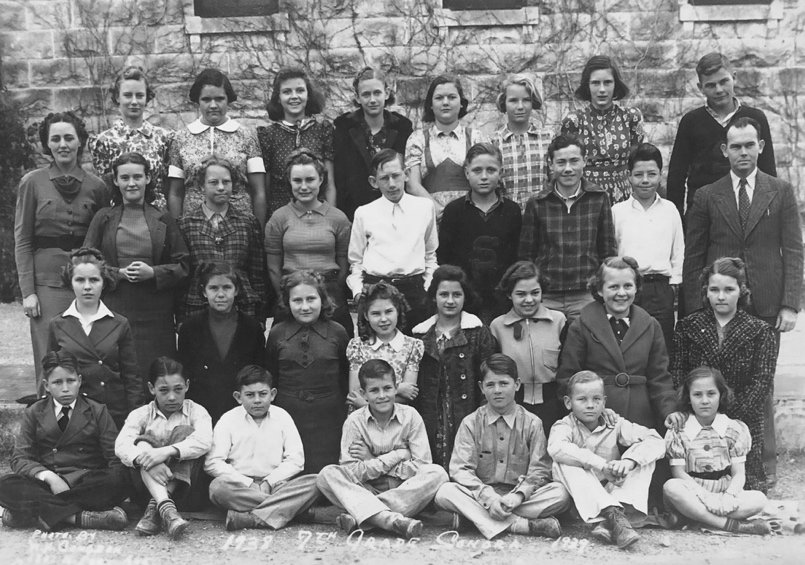
Edith May (top row, third from left) and Peggy (top row, far right)
Most girls our age had long ago put away their bicycles and roller skates. Some were wearing lipstick. Worse yet, others wore bras! We were both skinny and flat chested and relieved not to have to have one.
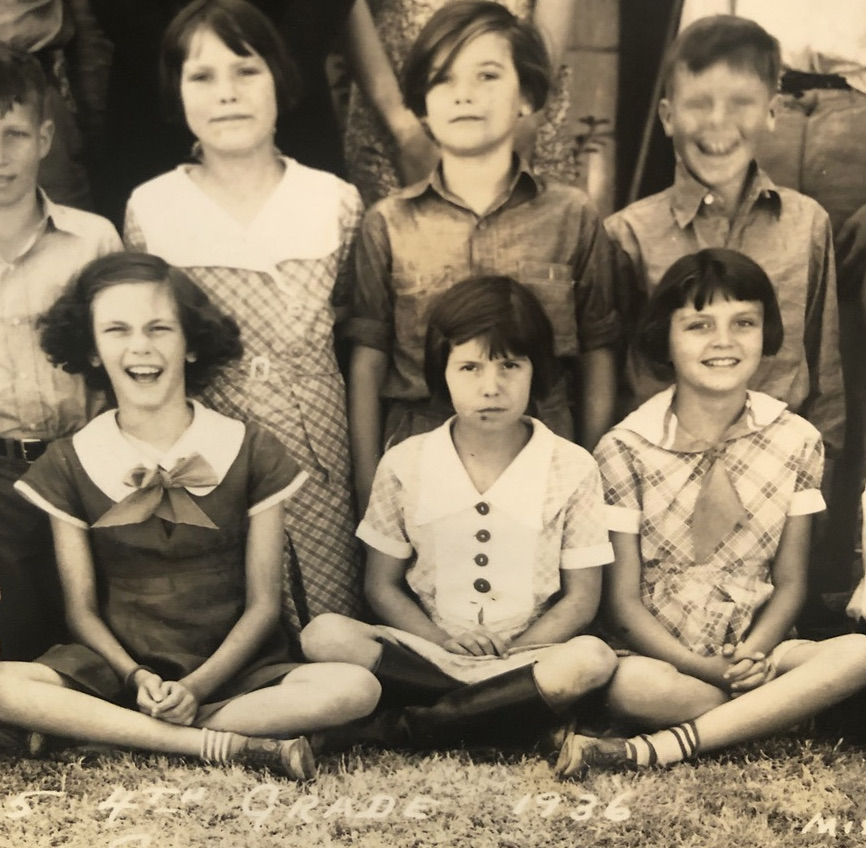
Lora Dell Ory apparently not thrilled with her placement between Peggy and Edith May.
We liked outdoor activities and looked forward to another summer of fun which to us meant riding bikes and swimming, our two favorite sports. We planned to do just that today, our first day of vacation. Our mothers gave their permission. Soon we were on our way as we pedaled off down the dusty caliche ranch road we knew so well, just out of town. I loved to feel the wind blowing through my hair as we raced our bikes. We were headed for a big cement and limestone tank on a ranch 4 miles from town. The ranch belonged to friends of my parents, and they had given us permission to swim there anytime we wished. “Just close the gates,” they said.
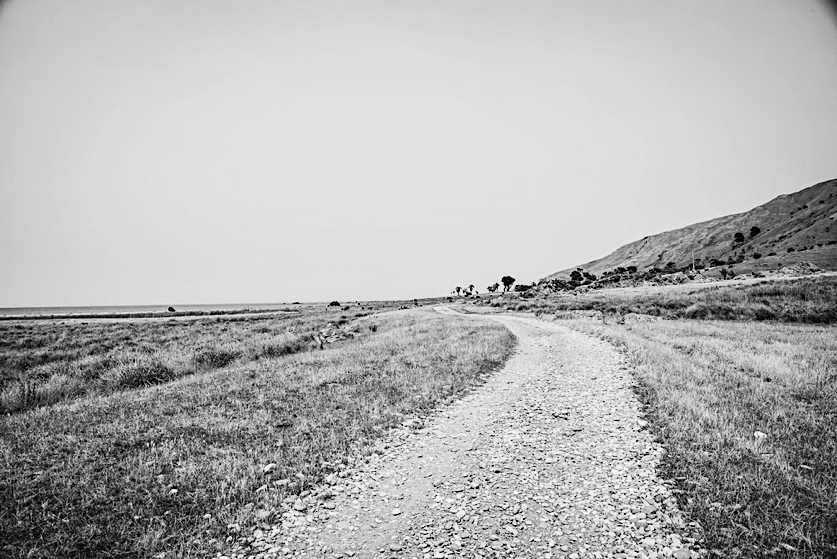
Peggy and I had been friends since kindergarten, through all the stages of childhood from dolls, mud pies, swings, jump rope and roller skates, cops and robbers, cowboys and Indians and on to radio shows and movies and Nancy Drew mystery books. We saw all the Shirley Temple films and enjoyed nature movies like Frank Buck’s ‘Bring ‘em Back Alive’, true adventure films of African animals and of other exotic places and people. We loved cowboy movies, too, especially with stars like Tom Mix and Ken Maynard. On the radio we listened faithfully to our favorite daily serials with Jack Armstrong “the all-American boy”, along with The Lone Ranger and his Indian friend, Tonto, Little Orphan Annie and Dick Tracy after gangsters. These same characters were in the comic section of the newspaper as well as in comic books, all of which we read.
“Annie” was our favorite and came on the radio every afternoon at four o’clock. We tried to finish homework and piano practice to watch it. We decoded the secret message for the day with the decoders we had ordered from the sponsor, Ovaltine, with the foil from the top of the Ovaltine container. We drank milk mixed with two tablespoons of Ovaltine and shook it up in the Orphan Annie mug which had a rounded lid which fit on tightly. It was decorated with a picture of Annie and her dog, Sandy. The best prize from Orphan Annie’s show was a ring with a built-in rear view mirror. Most of the girls at school, and some boys, liked the program, too. We checked our deciphered codes with each other and often sent coded notes to each other. Flash Gordon was a favorite, too. It was great to imagine space travel and space wars with ray guns which we acted out in the top limbs of the giant pecan tree in our backyard. There was little doubt in our minds that it could be real one day. Surely John Glenn and Alan Shepherd were inspired in their childhood by this same Flash Gordon series or from his comic books.
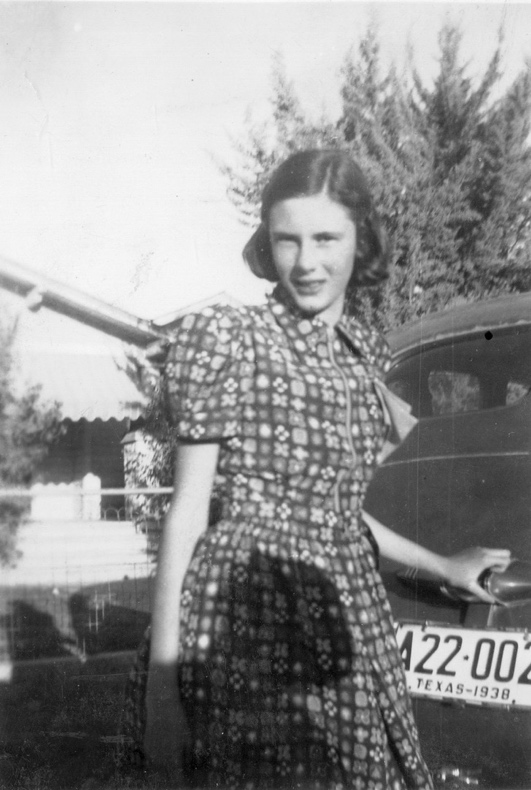
Everything was more fun when we were together, even the dreaded piano recitals when we had to dress up. Peggy’s aunt bought her a pretty organdy dress to wear in the spring recital this year. She didn’t like it much because of the ruffles. My mother made mine out of taffeta. She made most of my clothes, and they were pretty. Sometimes, though, I really wished I could have a store-bought organdy dress like hers. Peggy said she liked mine better. That’s the way she was.
Once in a while, Peggy talked about her father. I never met him but when she talked about him, it seemed to make her sad. Her parents were divorced. It was a subject no one talked about as if it were shameful. She was sensitive about that, and children could be so mean. “Why doesn’t your Daddy live with your mother?” or “You don’t really have a father, do you?” This hurt her feelings, but she usually just kept quiet, hoping they would forget about it, but they never did. She told me she wanted to go live with him when she got to high school, and then she would show me his picture. I thought he looked like Clark Gable. I felt sorry, but I hoped she wouldn’t leave. Then she would go for weeks and never mention him. Other than when the sadness came over her, she was always laughing and playing and was more fun than anybody. I don’t think he ever came to see her. I wondered why but never asked. I knew he lived a long way away in San Antonio which was 180 miles from where we lived.
Peggy lived in her grandmother’s house with two aunts and her mother. I thought she was lucky to have relatives. Mine lived out of the state, and I barely knew them. Nan was her favorite aunt. I liked her, too. The other was Carrie, nice, but a little bossy. I hardly ever saw her mother who stayed in bed or in her room a lot. I guess she was not well. She was nice though and sometimes we would sit by her bed and talk. She had a lot of headaches. Now I often reflect on that day in May when we enjoyed such freedom from care or worry. It seemed, with the whole summer before us, we had forever to be free of care and do whatever we wanted. We were growing up in spite of ourselves and sensed it would soon change one day. But today was ours.
We were nearly at the ranch, after struggling up the last two difficult hills, a rocky road and a cattle guard. The tank was out in a pasture, far from the ranch house which was another two or three miles down the road. When we got there, we took off our clothes and jumped into the cold water. It was absolute heaven. We were totally free.
Tanks like this were built and used to store water for livestock. They were clean, and though a little mossy on the bottom, the water was clear and great for swimming. Clean water was constantly pumped into it by the nearby windmill. The excess water went to a trough for the cattle’s water supply. The tank was a perfect place to swim and was only 4 or 5 feet deep. Nobody had a private pool then, and certainly the town hadn’t built a public pool yet. If one learned to swim, it almost had to be in one of these ranch tanks. The first swim of summer is about the most exciting thing there is. At least I thought so. After about twenty minutes we were getting cold and jumped out to warm up in the bright Texas sun. The tank was about two feet thick and a perfect place to sunbathe and absorb heat from the smooth limestone rocks. After getting back into our clothes we devoured our sandwiches and split an orange. Then we began the long ride home. When we arrived home, we were exhausted and starving! Peggy was spending the night. After supper we read Nancy Drew mysteries and soon fell asleep. The next day I woke up early. I tried to wake Peggy, but she pulled the covers over her head and said she didn’t feel like getting up. I left to dress and wash up. Mother soon called us to breakfast, so I went to get Peggy and pulled the covers back. “Wake up, lazy bones,” I said. “We’re having your favorite! Waffles and sausage for breakfast.” Ever so slowly she stumbled into the bathroom, still half asleep. As she dressed, she complained that her neck hurt and kept rubbing it. I said it must be a crick, so I massaged it for her, but that didn’t help. She said it just made it worse.
When we sat at the table, Mother asked, “Don’t you feel good, Peggy? You look tired.” She was concerned, but Peggy assured her she was alright. “It’s just from our long bike ride,” she replied. However, I noticed she hardly touched her food which wasn’t like her, for she loved Mother’s waffles. After breakfast we helped hang some laundry on the clothesline for my mother. I noticed Peggy was very slow. It wasn’t like her to be so listless, but I didn’t say anything. Soon the clothes were waving in the breeze.
When we were walking back to the house, still under the clothesline she suddenly walked right into one of the cedar posts which held up the lines, as though she didn’t see it. She was stunned. I asked if she was alright. She mumbled that she was. I put my arm around her as we went inside to steady her. That was when my mother said, “Peggy, let me feel your forehead. I think you might have a fever. You might be getting sick. Perhaps you should go home. I’ll call your mother and tell her you’re not well.” I said that I would walk her home. Mother told her we would get her bike and clothes to her house later. She lived only a short distance away, and we walked slowly, holding hands. I said goodbye as she went into her house.
“Get to bed, and you’ll feel better tomorrow,” I said. “Remember, we want to go to the picture show Friday to see Huckleberry Finn. We’ll pick you up because Mother and Daddy want to go, too. We don’t have to sit with them. We’ll sit close, down in front.” “I’ll be o.k. by Friday,” she said. “I’ll call you tomorrow,” I shouted as she closed the door. We had been talking all week about going to see the new film.
The next day I called hoping she would be better, but Nan said she was too sick to get out of bed. I asked what was wrong. She didn’t know but said they were waiting for the doctor to come any minute. She told me Peggy’s neck and back hurt her terribly, and she had a painful headache and high fever. Disappointed and worried, I asked her to please tell Peggy I called. Again, Friday I called. Surely, she would be well. Her aunt answered again. Before I could ask, she said, “Peggy is very ill.” I heard serious concern in her voice this time. “What’s wrong?” I demanded. “We don’t know. The doctor is with her now.” Then she added, “It might be spinal meningitis. She is much worse.” I remember her saying something about Peggy’s head being pulled back and that her back was arched. I lamely whispered, “I’m sorry. Please tell her….”, but she had already hung up. I was really scared then. I ran to tell Mother. I wanted to cry. Why was she so sick? Was it the bike ride? Or the swim? That night my parents took me to see Huckleberry Finn, but I was so worried about Peggy that I couldn’t enjoy it. They hoped it would get my mind off Peggy’s illness, but we all were worried.
Early the next morning I sensed my mother was sitting on my bed, and I awoke to feel her stroking my forehead and running her fingers through my hair. She didn’t usually do that. Then she wrapped her arms around me and quietly told me, “Peggy died last night. She died on the way to San Antonio in an ambulance. It was Bulbar Polio.” I knew that was the very worst kind. People who got that died or spent the rest of their lives in iron lungs. I screamed, “No. No,” and crumpled into her arms. Mother was crying softly, too. I was gasping for air. My throat ached. All I could say was, “No! She can’t die!” I clung to my mother again, sobbing, then ran to the bathroom to wretch. I couldn’t breathe. I was shivering. “It’s not true!” I sobbed, unable to stop. Finally, I lay quietly in my mother’s arms. It was like living a nightmare. I don’t remember much after that. I had never known death on such a personal basis. My grandmother died before I was born. My other Grandma died when I was seven years old. I knew she had been very ill. I loved her but barely knew her, for she lived far away. I knew some of the people who died in our town. My parents went to their funerals, and I had seen the hearse. Peggy and I sometimes rode our bikes around in the pretty cemetery just outside of town. We used to read names on tombstones and talked about death and dying. It was something that seemed so remote to us that we could talk about it safely without fear or worry.
Peggy’s clothes were still at our house. Her bicycle stood by mine on the stand outside. I sobbed again when I saw her things. What would I do without her? We were to go to high school and still be best friends. What about her mother? And Nan? And Carrie? And her grandmother? Does her father know?
Every summer people were warned to avoid crowds, movie theatres, and other large gatherings. We were told to be careful not to get too hot and to stay home. We had heard about President Roosevelt and how he had to swim in hot pools in Georgia to get well. When we saw a child limping, we knew he had been crippled by polio. One leg was usually shorter than the other. This was a summer disease, and no one knew how it was spread. It wasn’t hot yet. School was barely out. Actually, it was still spring. It happened in May! It wouldn’t be summer until June 21st.
News spread quickly and our phone was ringing. I heard my mother tell people, “Yes, it’s true.” “Yes, Peggy spent the night here with Edith May, Tuesday night.” Today was Saturday. The telephone rang again, and this time it was our family doctor. I heard Mother say, “Yes, doctor. Yes, I think that’s a good idea.” When she hung up, she said he wanted me to have a gamma globulin shot, and he would be right over to give it to me. He said I should stay away from children and friends, but I would be allowed to go to the funeral.
Peggy’s funeral was held in their home where I had played and visited many times. We were shown in and then I saw her. I gasped. She was in a beautiful white casket and was wearing the same white organdy dress she had worn in the piano recital. She looked like she was sleeping and held a small bouquet of pink roses. Her dark brown hair spread on the pillow barely touching her face. I remember how waxen she looked, like a beautiful doll. I had never seen a dead person before, a body. Seeing her like that, I was suddenly overcome by the reality of her death. It was real. She was not real. Peggy was not really there. I wasn’t prepared for this. It was too devastating. She was there but not really. A sob escaped my throat, and I felt myself falling. My parents, standing beside me, held me up as I tried to regain control. We found our seats. I remember nothing of the actual service, only the memory of seeing beautiful Peggy for the last time. Forever and ever, I tried to remember how she had looked in real life when we rode our bikes five days earlier. I tried to hear her shrill laughter when we sat shivering on the limestone rock tank after our first swim of the season. I wanted to see her smile again. The image of her in the casket was that of a sleeping princess in a fairy tale. If only a prince would come and kiss her back to life. I couldn’t erase it from my memory. There was a recurring dream I had later in which I saw her, still wearing the organdy dress, and reaching out to touch me with her outstretched arms saying, “I’m not really dead.” But no matter how hard I tried; I couldn’t reach her. I wanted to pull her back. She always vanished just before I could touch her. Then I would wake up in tears. This lasted a long time. Finally, the dreams stopped. Infantile Paralysis, as it was commonly called then, was a dreaded disease. It was the main conversation in our little town that summer of 1939. It had killed one of our own in a town where everybody knew everyone else, and everyone cared.
I seldom visit the beautiful cemetery where she is interred, but occasionally when I pass through my hometown, I stop to visit my parents’ graves and then walk the short distance to Peggy’s. She is with her family now, Nan and Carrie, her grandmother, and her mother who died of a brain tumor barely three years after Peggy died.
Peggy would be glad to know that polio is almost unheard of today in the United States. All because of the Salk and Sabin vaccines developed in 1952 which these two brilliant scientists perfected only thirteen years after her death, quickly eradicating this dreaded disease around the world.
